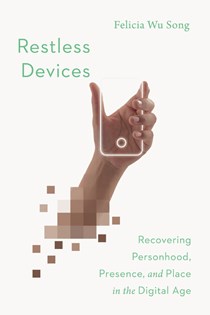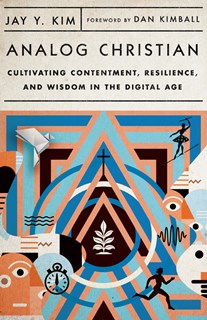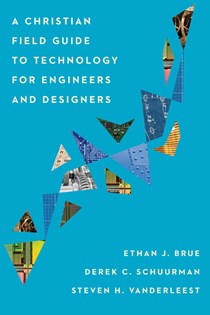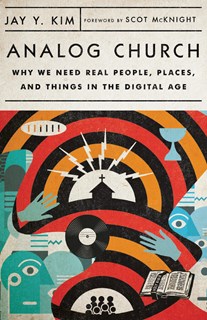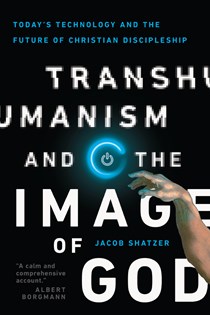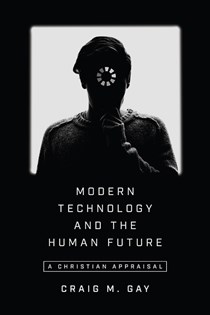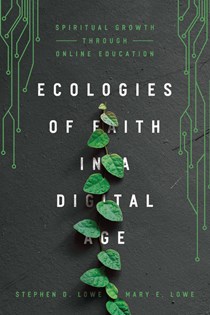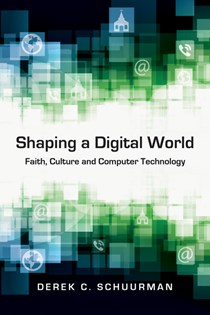Technology & Computer Science
-
Restless Devices
Recovering Personhood, Presence, and Place in the Digital Age
by Felicia Wu Song
We're being formed by our devices. Unpacking the soft tyranny of the digital age, Felicia Wu Song combines insights from psychology, neuroscience, sociology, and theology as she considers digital practices through the lens of "liturgy" and formation. Exploring pathways of meaningful resistance found in Christian tradition, this resource offers practical experiments for individual and communal change.
-
Analog Christian
Cultivating Contentment, Resilience, and Wisdom in the Digital Age
by Jay Y. Kim
Foreword by Dan KimballToday's technologies commodify our attention, keeping us scrolling and swiping at all costs. What's the damage to our souls? Exploring the ways the digital age and its values are affecting Christian discipleship, Jay Kim explores how we can cultivate the contentment, resilience, and wisdom to not only survive but to thrive as we navigate the digital age.
-
A Christian Field Guide to Technology for Engineers and Designers
by Ethan J. Brue, Derek C. Schuurman, and Steven H. VanderLeest
Technology and its power are both old and new—as is the wisdom needed to envision, design, and use it well. In this field guide for Christians studying and working in technology, case studies, historical examples, and personal stories encourage readers to ask harder questions, aspire to more noble purposes, and live a life consistent with their faith as they engage with technology.
-
Analog Church
Why We Need Real People, Places, and Things in the Digital Age
by Jay Y. Kim
Foreword by Scot McKnightAs our culture begins to reckon with the limits of a digital world, it's time for the church to do the same. In our efforts to stay relevant in our digital age, have we begun to move away from transcendence? Pastor Jay Kim grapples with the ramifications of a digital church, from worship and Christian community to how we engage Scripture.
-
Transhumanism and the Image of God
Today's Technology and the Future of Christian Discipleship
by Jacob Shatzer
Examining the transhumanist movement, biblical ethicist Jacob Shatzer grapples with the potential for technology to transform the way we think about what it means to be human. Exploring the doctrine of incarnation and topics such as artificial intelligence, robotics, medical technology, and communications tools, he guides us into careful consideration of the future of Christian discipleship in a disruptive technological environment.
-
Modern Technology and the Human Future
A Christian Appraisal
by Craig M. Gay
Technology has always shaped human life and our understanding of what it means to be human. But does it actually encourage human flourishing? By exploring the doctrine of the incarnation and what it means for our embodiment, Craig Gay raises concerns about the theological implications of modern technologies and movements such as transhumanism, offering an alternative vision to the path of modern technology.
-
Ecologies of Faith in a Digital Age
Spiritual Growth Through Online Education
by Stephen D. Lowe and Mary E. Lowe
Many Christian institutions have embraced new technologies, especially online education. But is it possible for us to grow spiritually through our digital communities? Steve Lowe and Mary Lowe, longtime proponents of online education, trace the motif of spiritual growth through Scripture and consider how students and professors alike might foster digital ecologies in which spiritual transformation can take place.
-
Shaping a Digital World
Faith, Culture and Computer Technology
by Derek C. Schuurman
Building on the work of Jacques Ellul, Marshall McLuhan and Neil Postman, as well as a wide range of Reformed thinkers, Derek Schuurman provides a brief theology of technology—rooted in the Reformed tradition and oriented around the grand themes of creation, fall, redemption and new creation.


